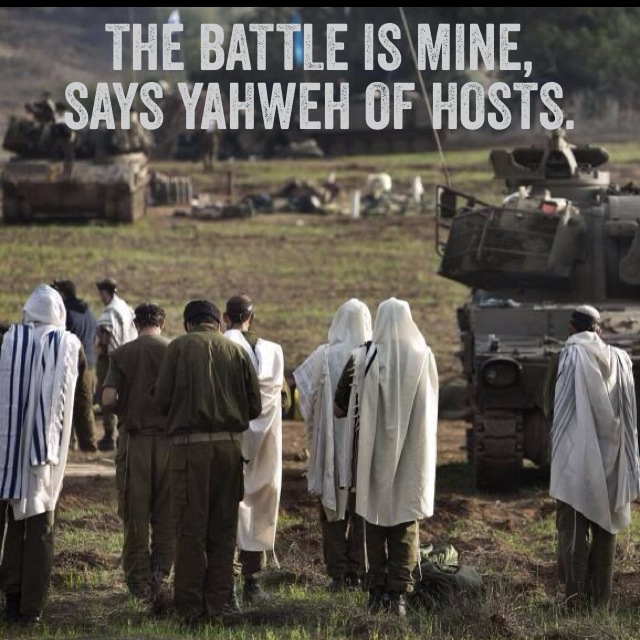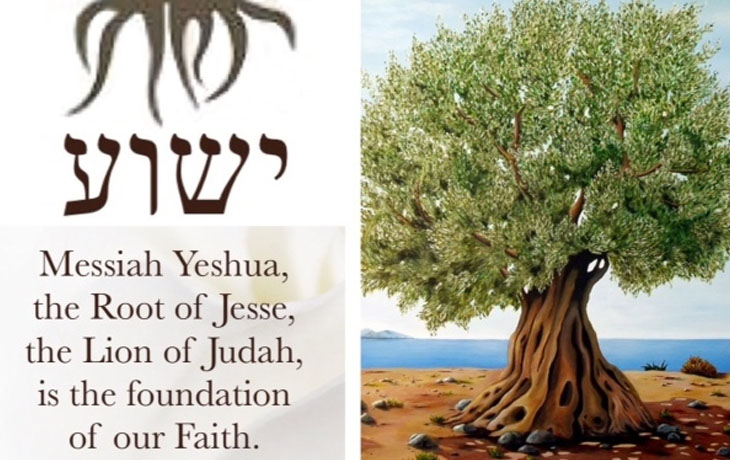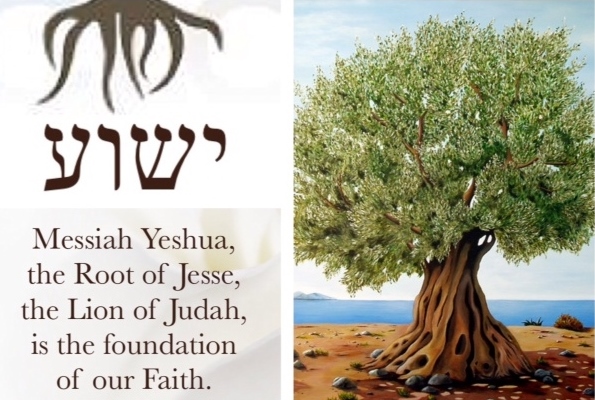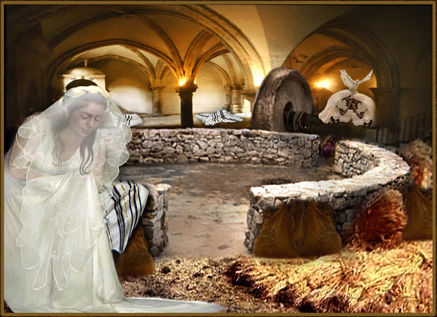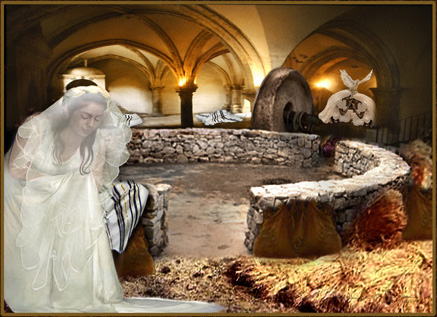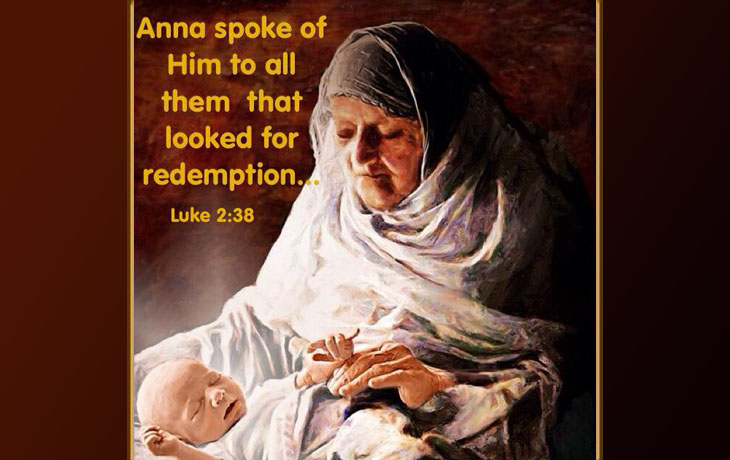
The Sabbath – A Day of Delight
by Jane Diffenderfer
(This article was originally published in the Jan./Feb. 1996 edition of First Fruit of Zion magazine. Edits have been made for this 2014 update.)
Our Father created the Sabbath for man to be a day of delight. It is a special time, set apart at the end of each week, to enjoy fellowship with Him. On Sabbath, we are free from our work routine to slow down and rest. This time allows us to concentrate on our family, to pray, worship, and play together. It is the one day of the week when we finally get the chance to dig deep into His Word, and receive new insight, knowledge, and understanding. Our Father has taught us so much about His ways as we have learned to keep the Sabbath, and we have been so very blessed. We do not keep it legalistically, as though we have to. Instead, we keep Sabbath we get to, because we want to.
Our motivation is the love we have for our gracious and loving Father in heaven. He offers a promise to those who observe the Sabbath, recorded in Isaiah 58: “If you call the Sabbath a delight and the LORD’s holy day
The Sabbath Existed Before the Giving of Law [Torah]
The Sabbath is introduced in Genesis where it states that in six days God created the heavens and the earth, and on the seventh day He rested. The definition of the Sabbath, according to Strong’s Concordance (#7676), is “intermission, repose, cease, celebrate, rest”. According to Scripture, God blessed the seventh day and made it holy (Genesis 2:2-3). What God has called holy, cannot be altered by the traditions of man. The entire creation revolves around the established order of the Creator’s Sabbath day. The earth’s twenty-four hour rotation determines the day and night. The cycles of the moon determine the month. The earth’s revolution around the sun, determines the length of the year. Only the seven day week has no sign in the heavens that determine its length of time. It is defined by the Word of God, at the creation of the world, and all the world acknowledges the seven day cycle.
The Sabbath
Exodus 20:8-11 states, “Remember the Sabbath day, to keep it holy. Six days shall you labor and do all your work; but the seventh day is a Sabbath of the LORD your God; in it you shall not do any work, you, or your son, or your daughter, your manservant, or your maidservant, or your cattle, or the stranger that is within your gates; for in six days the LORD made heaven and earth, the sea and all that is in them, and rested on the seventh day, Therefore, the LORD blessed the Sabbath day, and hallowed it.” The work week of six days, with a
The Sign of the Covenant Between Yahweh and His People
The passage in Exodus 31:12-17 instructs, “Say to the Israelites, ‘You must observe my Sabbaths. This will be a sign between me and you for the generations to come, so you may know that I am the Yahweh who makes you holy…” This sign is to be kept throughout all our generations. His Spirit calls us to be a holy, separated people that we may distinguish between that which pleases our Father, and that which does not. “…Wherefore the children of Israel shall keep the Sabbath, to observe the Sabbath throughout their generations, for a perpetual covenant. It is a sign between me and the children of Israel forever: for in six days the LORD made heaven and earth, and on the seventh day He rested, and was refreshed.”
Forever means just that, forever. The Sabbath is a perpetual covenant reminder of the relationship God has with His children. He chose to
In Leviticus 23, Yahweh told Moses that His holy feasts are His appointments with His people. The Sabbath is the first feast listed. It is a day of sacred assembly. The Hebrew word for this assembly is
The Sabbath Belongs to Yahweh, It is His Day
In Nehemiah 9:1-15 the Jews separated themselves for a time of fasting and prayer, to confess their sins and the wickedness of their fathers. They praised God for His glorious name, and for creating the heavens and the earth. They remembered His faithfulness to Abraham and their forefathers. They praised God for the giving of the Torah. They were grateful for His laws that are just and right, and His commands that are good. They praised Him for making known to them His holy Sabbath saying, “You came down also upon Mount Sinai, and spoke with them from heaven, and gave them right ordinances and true laws, good statues and commandments, and made known to them Your holy Sabbath…” We, as Believers in Messiah Yeshua, are also delighted that He made His holy Sabbath day known to us.
In Isaiah 56:1-7, we see that Sabbath is not only for the Jewish people, but for the nations. “This is what the LORD says: Maintain justice and do what is right, for My salvation [Yeshua] is close at hand and My righteousness will soon be revealed. Blessed is the man who does this, the man who holds it fast, who keeps the Sabbath without desecrating it, and keeps his hand from doing any evil…Let no foreigner who has bound himself to Yahweh say, ‘The LORD will surely exclude me from His people.’ For this is what the Lord says: Foreigners who bind themselves to the LORD to serve Him, to love the name of Yahweh and to worship Him, all who keep the Sabbath without desecrating it and who hold fast to My covenant, these I will bring to My holy mountain and give them joy in My house of prayer. Their burnt offerings and sacrifices will be accepted on My altar; for My house will be called a house of prayer for all the peoples [nations].” We keep the Sabbath, as a sign that we are, in covenant with the God of Abraham, Isaac, and Jacob. In Messiah, are Abraham’s seed and heirs according to the promise (Gal. 3:29).
A Day of Delight
In Isaiah 58:13-14, there is another promise regarding the Sabbath. “If you keep your feet from breaking the Sabbath, and from doing as you please on My holy day. If you call the Sabbath a delight and the LORD’s holy day honorable, and if you honor it by not going your own way, and not doing as you please, or speaking idle words, then you will find your joy in the LORD, and I will cause you to ride on the heights of the land, and to feast on the inheritance of your father Jacob.” We love this promise
What Do the Ten Commandments Say?
We recognize the texts above are from what is called the “Old Testament”, and some suggest the Laws of Moses have been done away with for Believers in Messiah. We disagree with this notion. We believe ALL Scripture is given for instruction in righteousness, Torah included (2 Tim. 3:16). We believe all the Ten Commandments apply today to all Believers in Messiah Yeshua. No one who trusts Yeshua as Savior would suggest we are free from laws like, “You shall not murder”, “You shall not commit adultery”, or “You shall not steal”. So why does the modern church to say we are free from the fourth commandment, to “Remember the Sabbath day to keep it holy? If the six, seventh, and eight commandments are still valid, is not the fourth one also?
He is the Same
Many church leaders teach we are not under the laws of the Old Covenant; we are now under grace. The theory is that under the Old Covenant, God dealt harshly with His people. Many churches teach we are now in the “dispensation of grace”, under the New Covenant, and the LORD is now merciful to His people. This theory is contrary to Scripture. “I am the LORD, I change not,” (Malachi 3:6). God has always been merciful to His children. He has always been willing to forgive the repentant. He is the same yesterday, today, and forever (Hebrews 13:18). Psalm 119 says grace and the law are not opposing concepts, but two compatible expressions of faith. One does not exist without the other. “Keep me from deceitful ways: be gracious to me through your law [Torah]…I run in the path of your commands, for you have set my heart free” (verses 29-32).
Too many churches teach, “We are under grace”, as an excuse to be disobedient. Should we, as Believers in Messiah, continue to sin, now that our hearts have been set free? God forbid. “Now you have been set free from sin, and have become slaves to God. The benefit you reap leads to holiness, and the result is eternal life” (Romans 6:22). In the past we were in bondage to sin. Through His grace we have been set free to be slaves to righteousness. Through repentance, we now have a new master. “You are slaves to the one you obey…Thanks be to our God that, though you used to be slaves to sin…You have been set free from sin, and have become slaves to righteousness” (Romans 6:15-18).
Remember the Torah of My Servant Moses
We believe there is a stirring of the Holy Spirit among His people to prepare the Way of the LORD. Just as in the time of Yeshua’s first coming, when John the Baptist came to turn the hearts of the fathers to their children, the Spirit of Elijah is at work today, to prepare for Messiah’s return. Malachi 4 tells of the Day of the LORD that is coming. Destruction awaits the
Believers in Messiah Are Free to Keep the Sabbath
It was Yeshua’s custom to be in the synagogue on the Sabbath, to hear the Torah and the Prophets (Luke 4:16). Let us follow His example and walk as He did. There is no sin in keeping the Sabbath. Yeshua objected to some rabbinical interpretations on the observance of the Sabbath day, but not to the commands of Torah. Paul also kept the Sabbath, as well as the other Biblical feasts of the LORD. There are several references to him being in the synagogue on the Sabbath day. Acts 13 tells of Paul being in the synagogue speaking to the “men of Israel” and to the “gentiles who worship God.” The people, Jew and non-Jew, were blessed by the preaching, and were encouraged by Paul to continue in the grace of God (Acts 13:43). Keeping the Torah is not opposed to grace. Yeshua was full of wisdom and grace and kept His Father’s commandments, and lived in His love. Paul followed the example of his Master, so should we.
“I Tell You the Truth”
Our Messiah established the permanence of the Torah when He said, “Do not think that I have come to abolish the Torah or the Prophets; I have not come to abolish them but to
“I Delight in Your Commands”
The charge may now arise that we are being “legalistic”. If you ask if we love the Torah, our answer is, “yes”. The psalmist wrote, “I will walk about in freedom, for I have sought out your precepts…for I delight in your commands because I love them” (Psalm 19:44-48).
Do we believe observance of Torah is necessary for salvation? The answer is no, most definitely “no”. “For it is by grace you have been saved and not by works” (Ephesians 2:8). Our salvation depends on the grace given to us, through faith in Messiah Yeshua. We can never earn righteousness through doing the right things. It is the LORD alone who is righteous and He imparts that righteousness to us through faith in Messiah Yeshua. Once we have entered the New Covenant, the Torah is written on our hearts and minds. It is not done away with, but is inside of us. It is who we are, and how we live, as followers of Messiah.
As we grow in our knowledge of Him, we become conformed to the image of Him. We become more like Yeshua, as the Holy Spirit moves us to follow His commands. Torah observance has nothing to do with salvation, but everything to do with sanctification. Sin is
The Scriptures are given for correction, instruction, and training in righteousness. We must give our ears to the full counsel of His Word, contained from Genesis to Revelation. We need to give our hearts to understanding, to seek out His ways that are higher than our own. We should boldly walk along the road less traveled, to find the narrow way that leads to Him. Our testimony should be that of our Messiah, “The prince of this world has no hold on me, but the world must learn that I love the Father and that I do exactly what my Father has commanded me” (John 14:30-31).
#Sabbath #DayofDelight #FourthCommandment #KeepItHoly #ShabbatShalom




